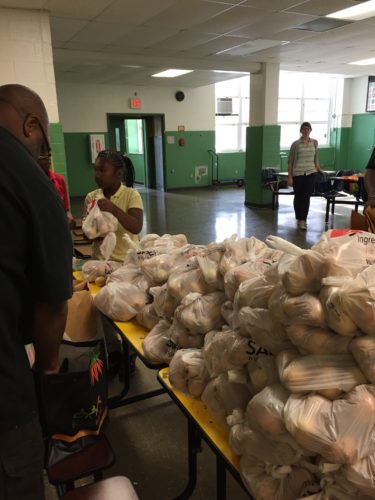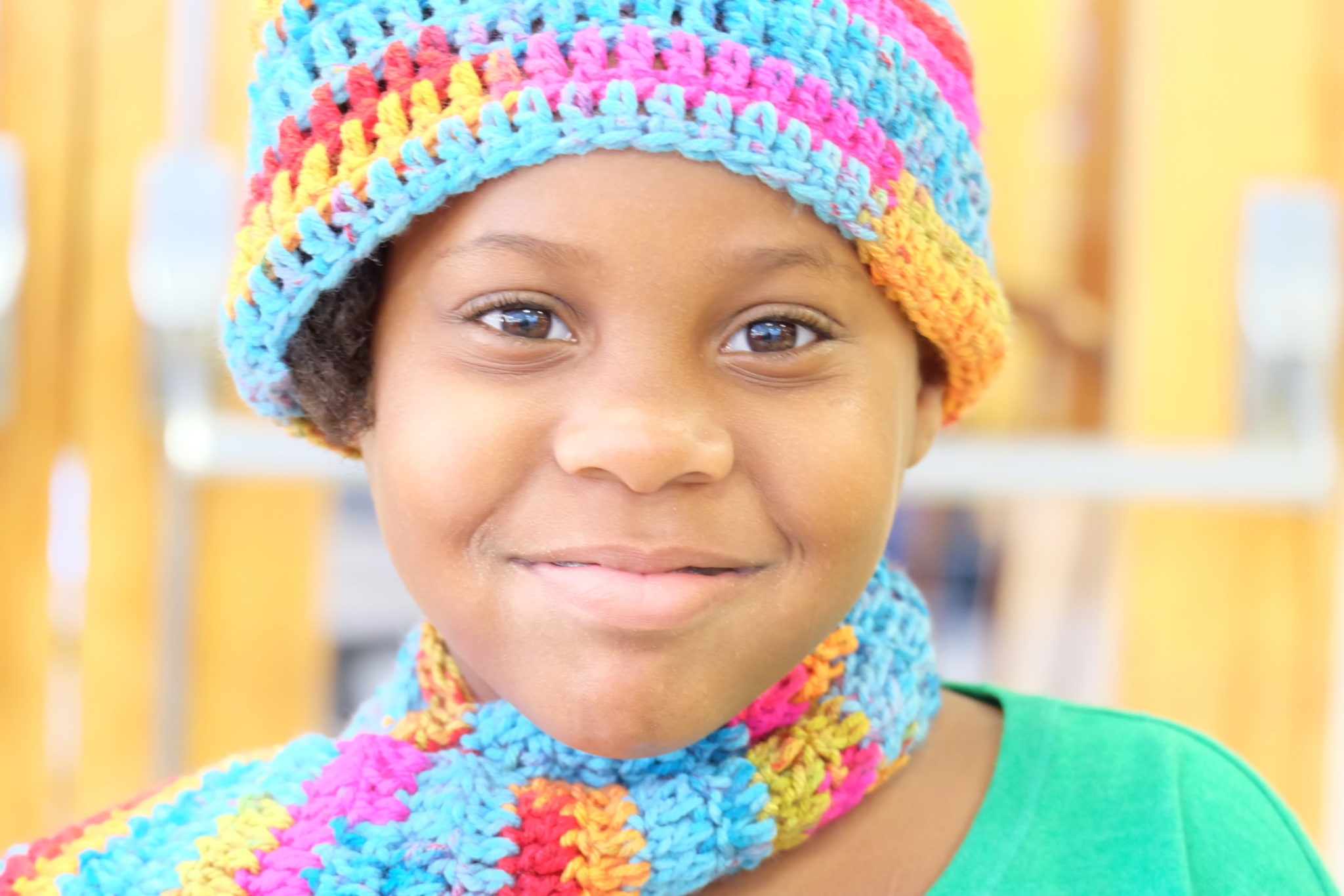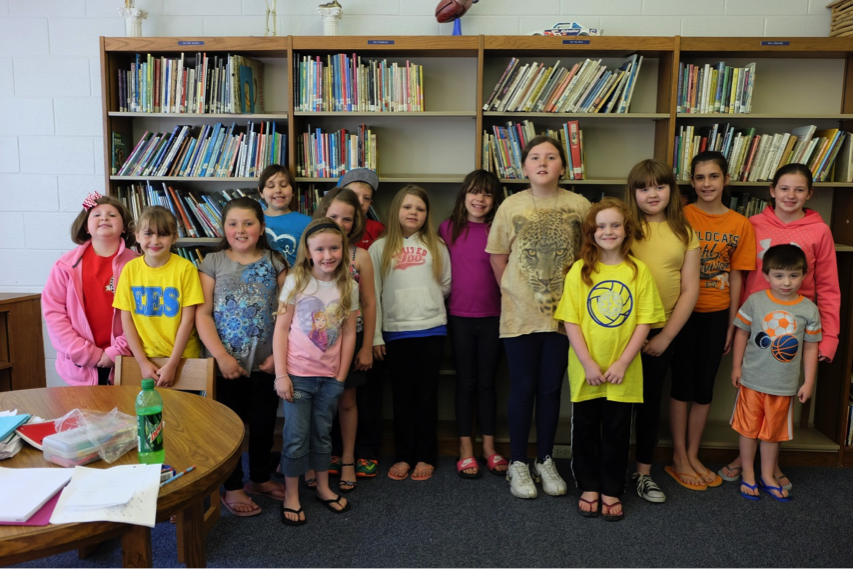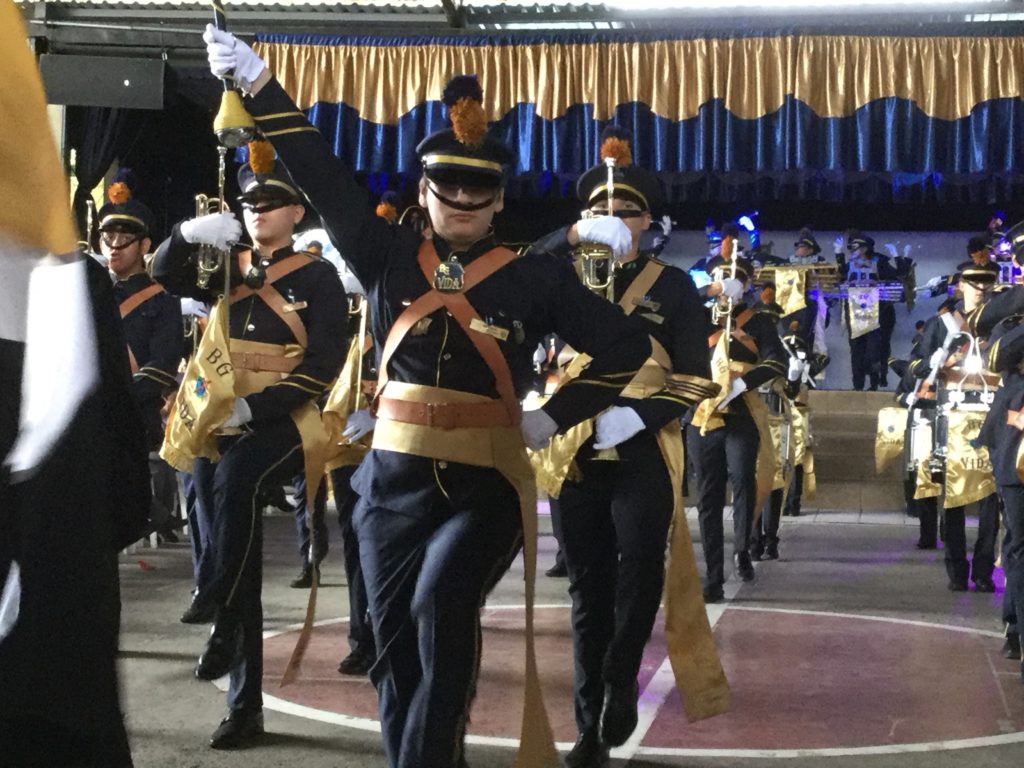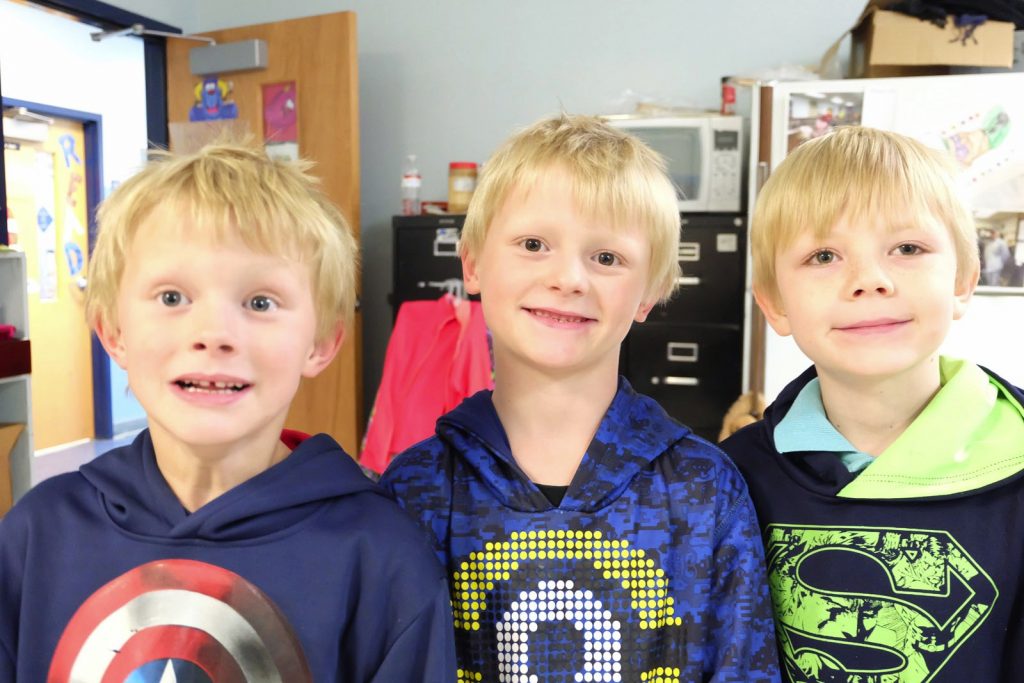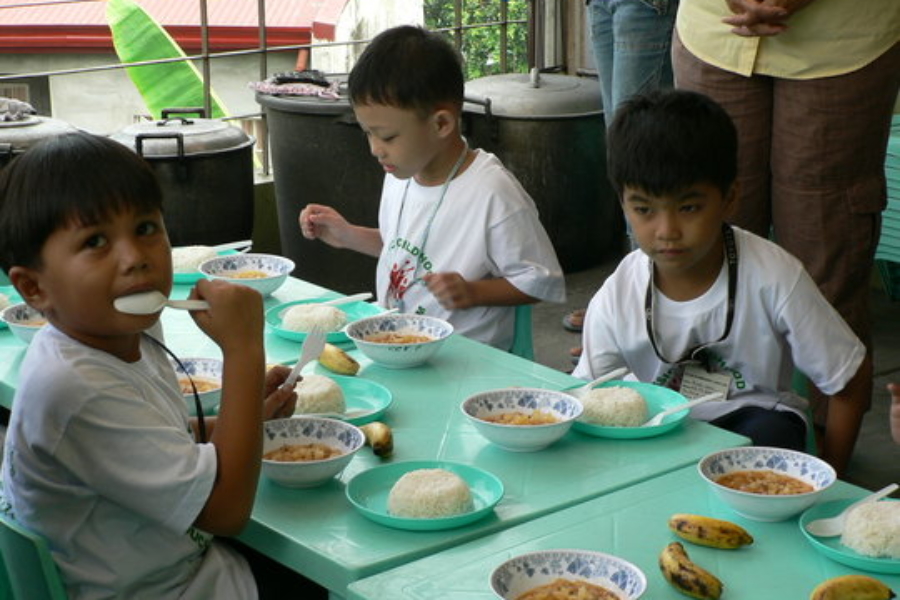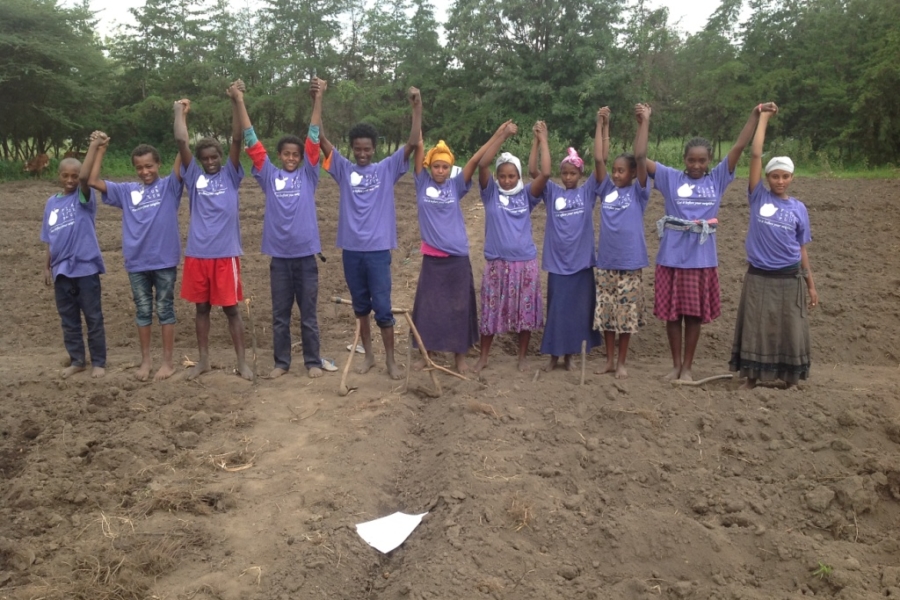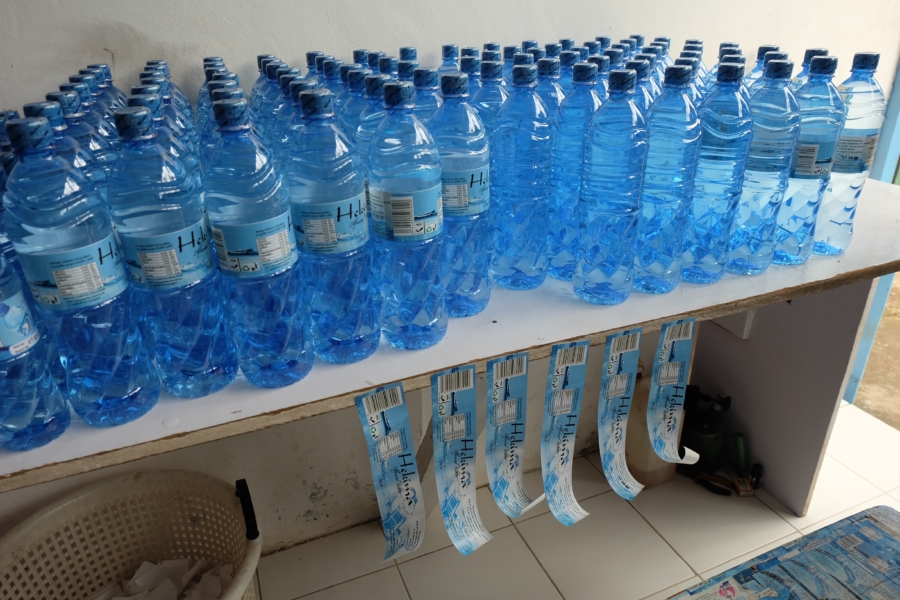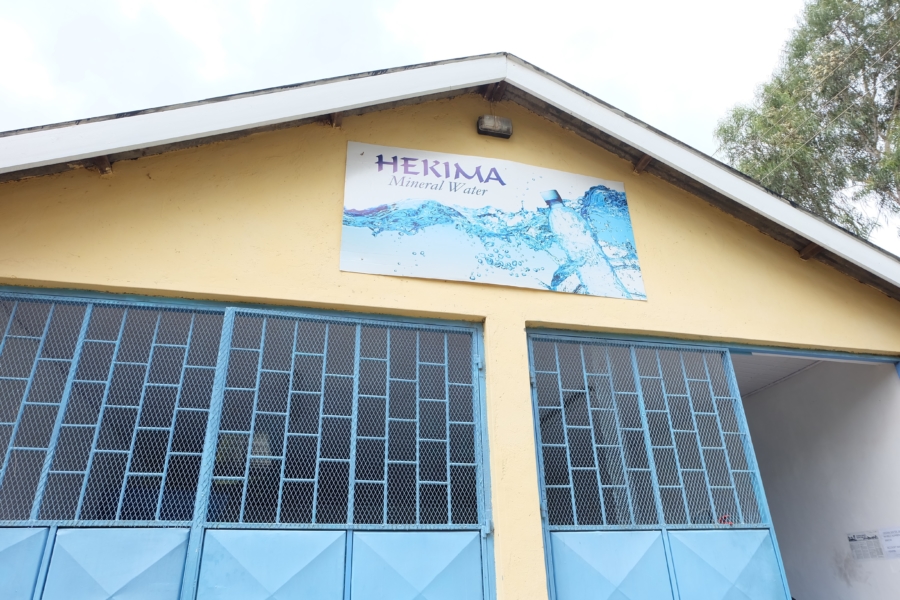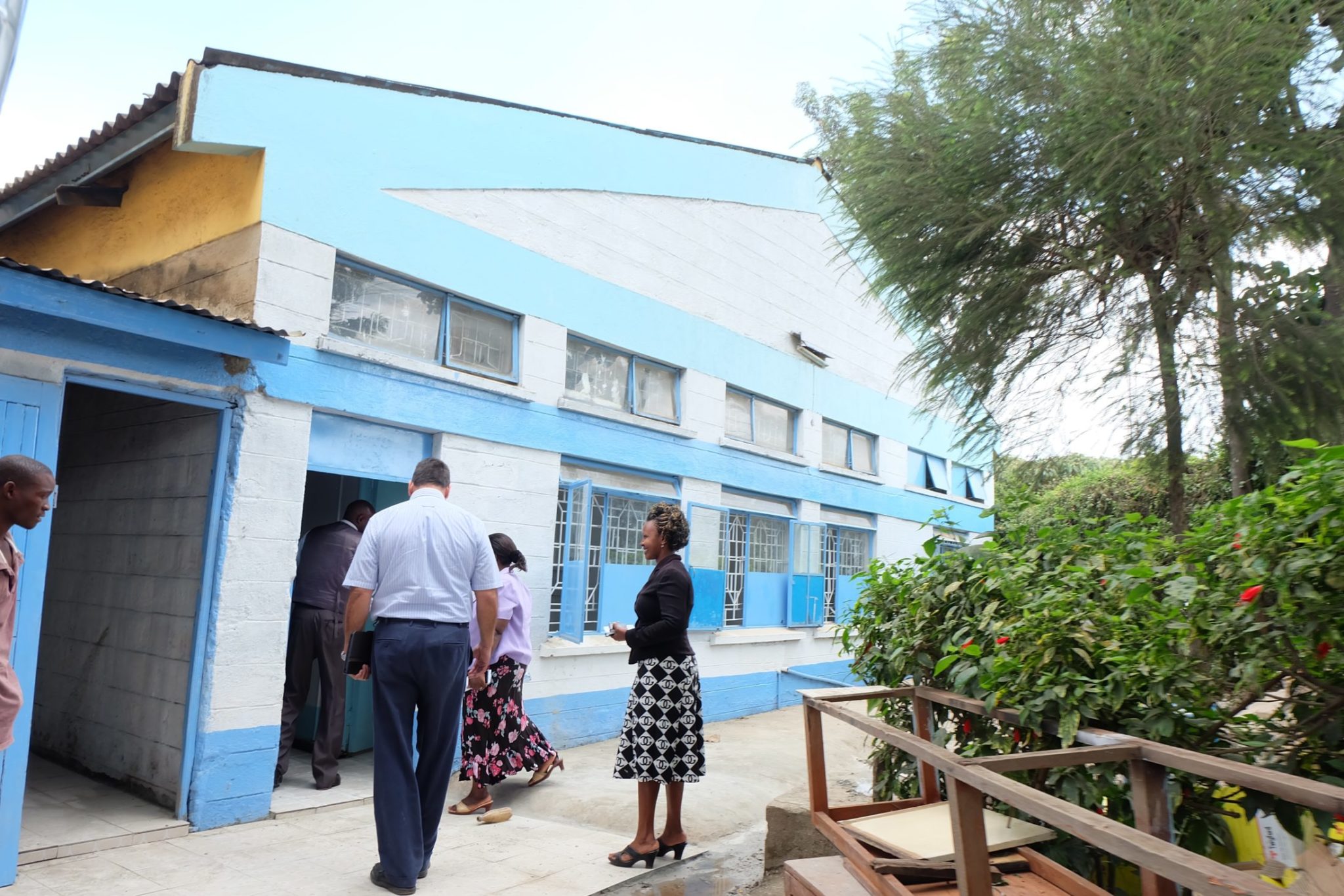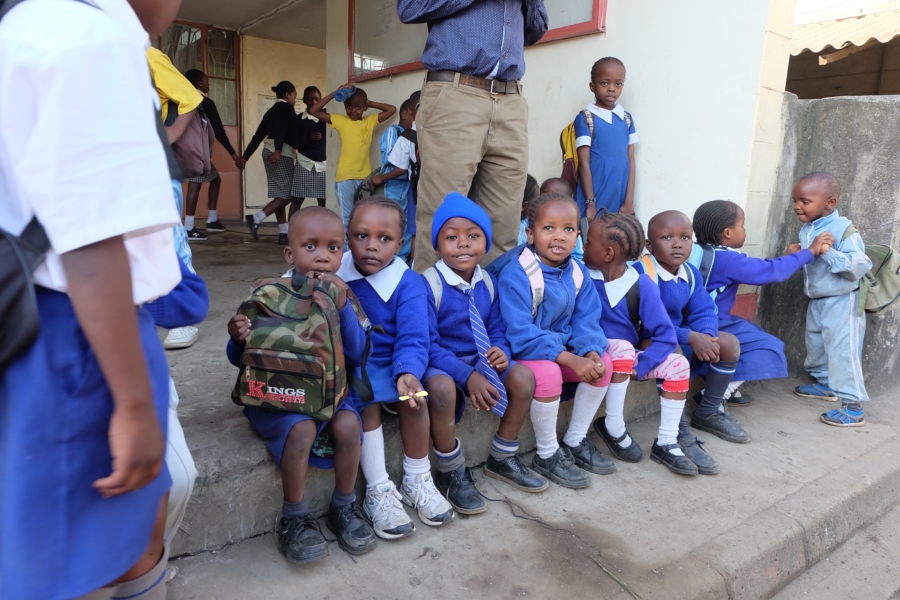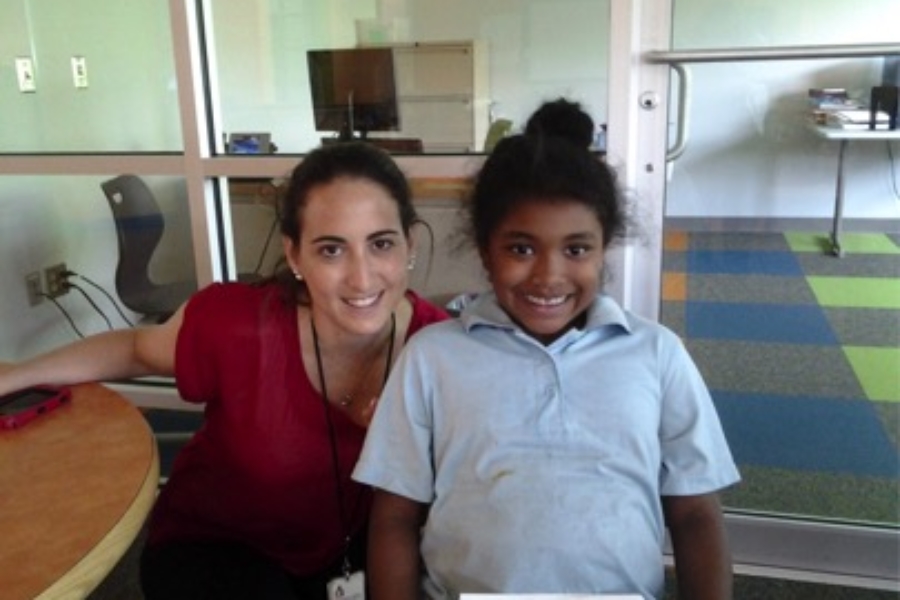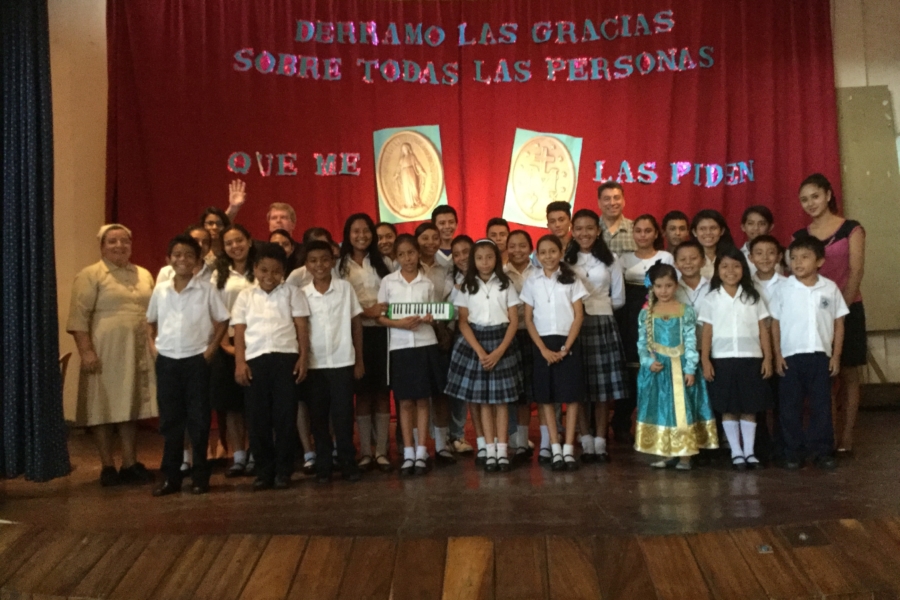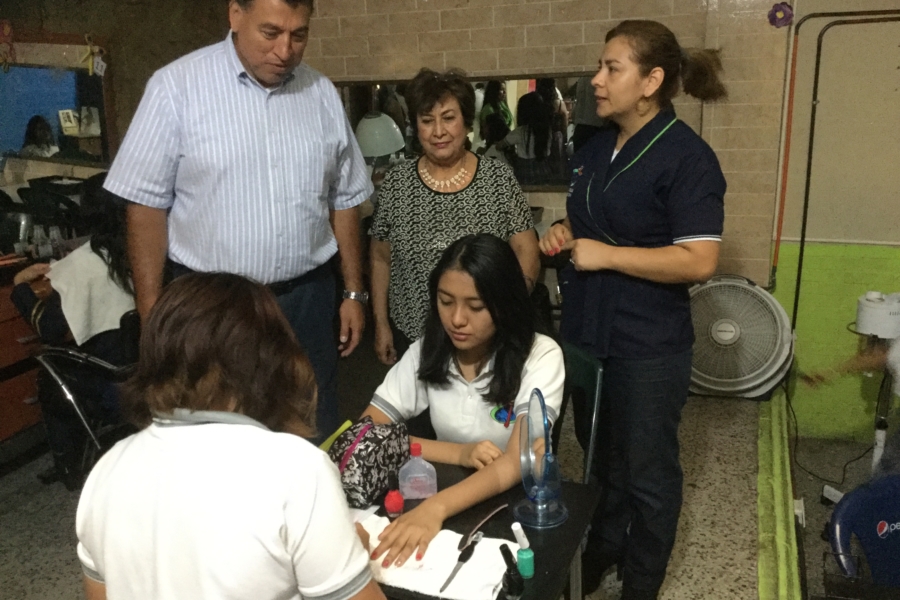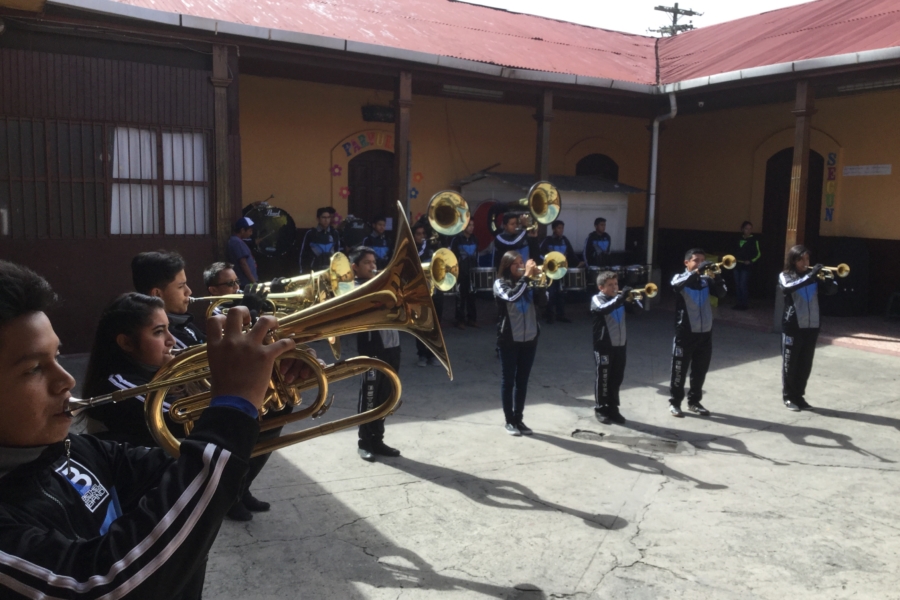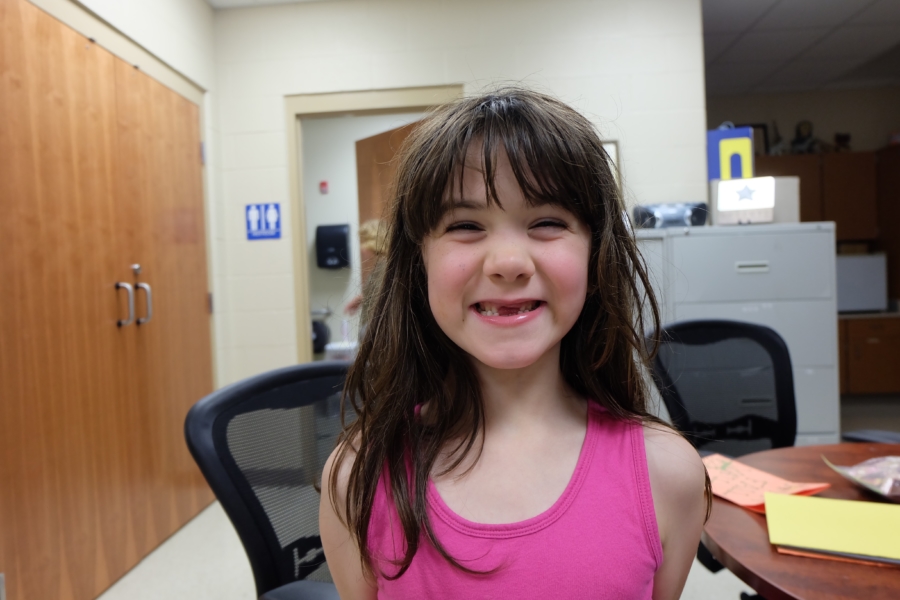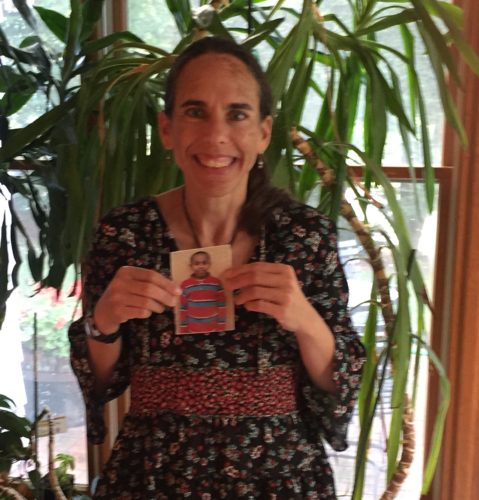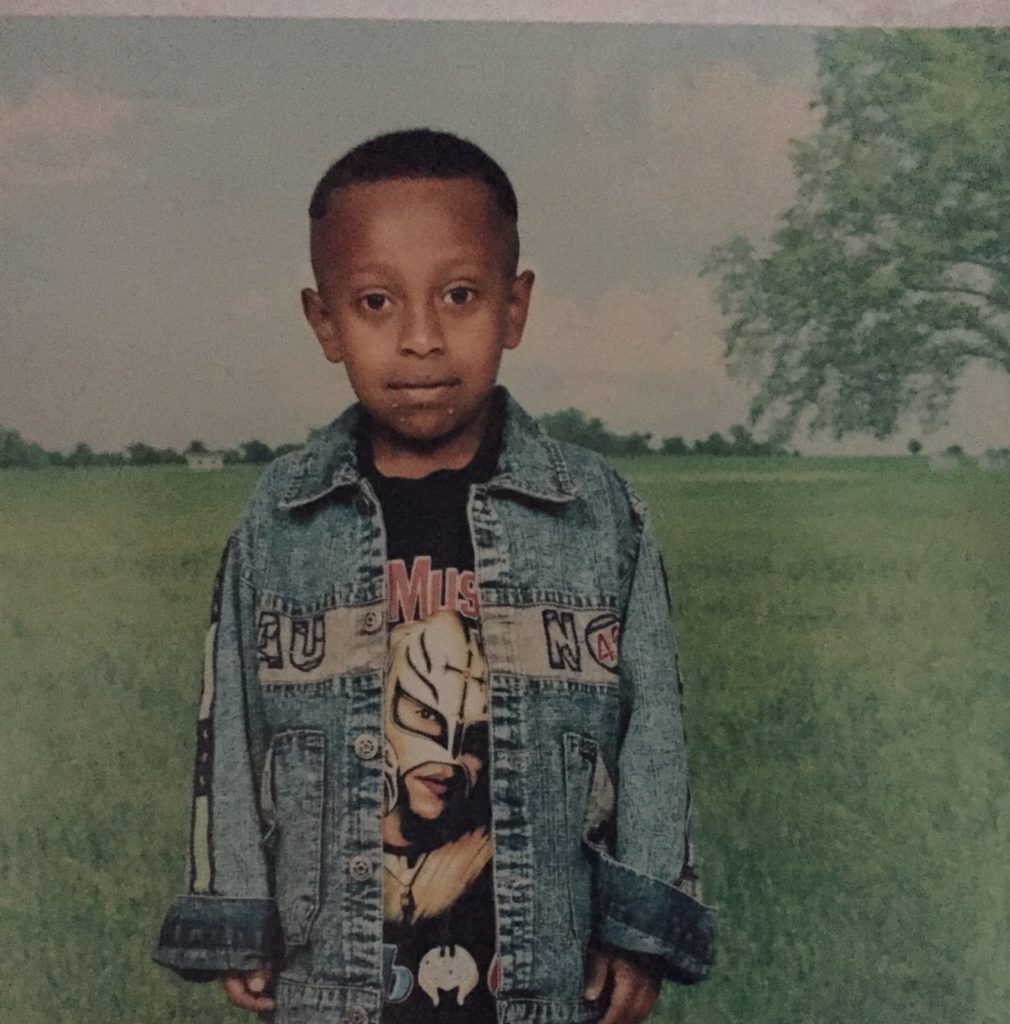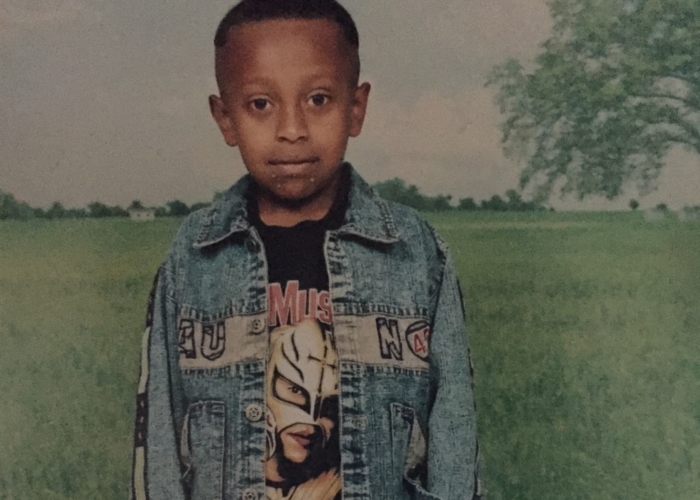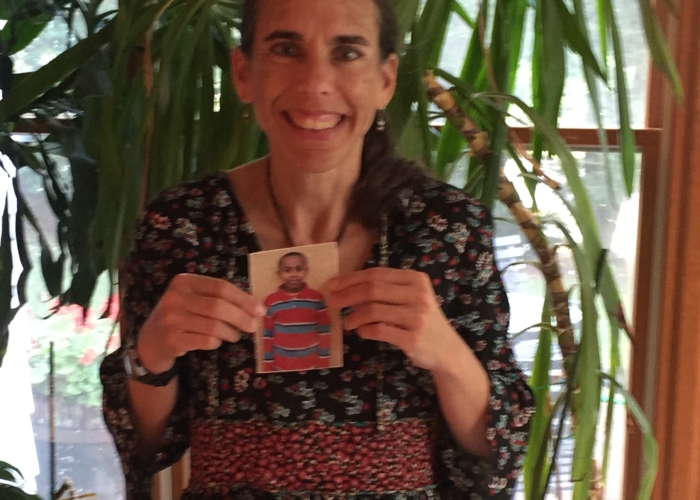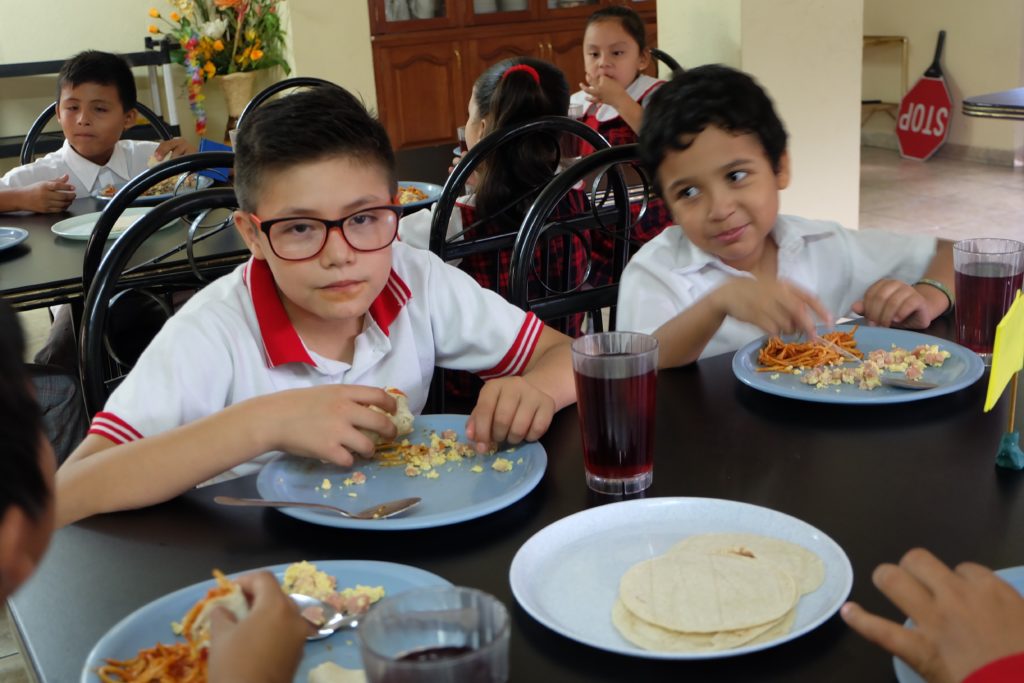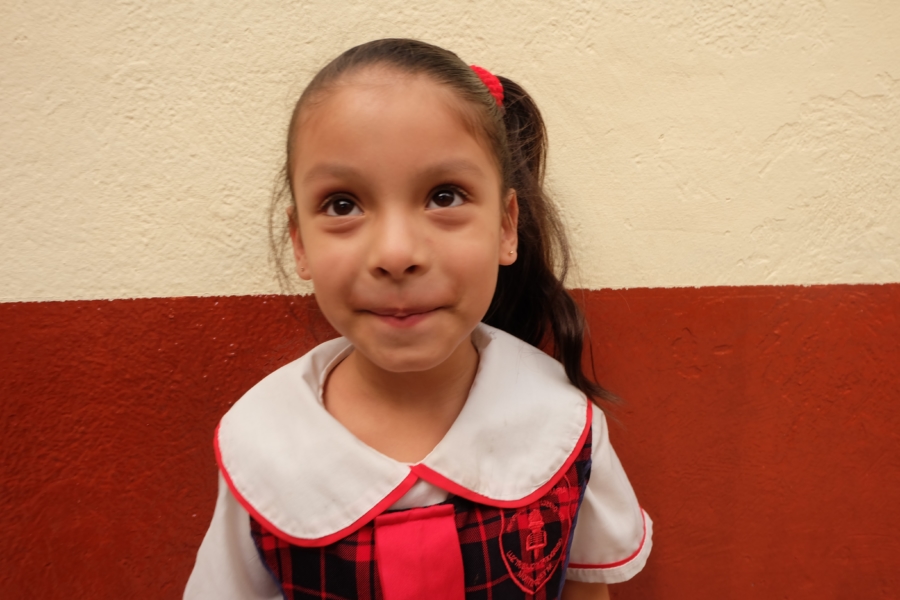In 1997, Southwest Airlines distributed thousands of copies of Dr. Richard Carlson’s bestseller, Don’t Sweat the Small Stuff, to its employees — including pilot Don Wyatt of Palm Coast, Florida.
Inspired by the sentiment of the book, Wyatt wanted to give back. And since the late author was a strong supporter of Children Incorporated, Wyatt began to research the organization.
“There are many fine agencies to choose from, but my personal favorite is Children Incorporated… The experience has brought tremendous joy and satisfaction to my entire family.”
– Dr. Richard Carlson
After thoughtful consideration, Wyatt signed on. He currently sponsors four siblings — three sisters and a brother. They live in El Progreso, Honduras, a town still recovering slowly from the destruction caused by Hurricane Mitch in 1998. Today, the population still grapples with the effects of homelessness, disease and continued poverty stemming from that natural disaster.
El Refugio Welfare Center opened soon after the hurricane to provide a place for poor and abandoned children to go to for food, clothing, and educational assistance. The center provides for the children during the day and invites parents to become involved at the center by providing support in childcare, hygiene and healthcare.
A sponsor since 1999, Wyatt has consistently gone above and beyond to help provide the siblings with the essentials they need to succeed. He is currently paying for one to attend college and plans to help the other three when the time comes.
We sat down with Wyatt to learn more about why he chose to become a sponsor, and what he’s learned along the way.
CI: How did you get involved with Children Incorporated?
DW: Like many other people, I learned about Children Incorporated though the book, Don’t Sweat the Small Stuff. I acquired that book through my employer, Southwest Airlines, in 1997. The company thought so much of the book that they bought thousands of them for their employees. The book says to give back to others, and I was impressed with what the author said about Children Incorporated. I have contributed to other charities, and one of the things that I liked the most was that the money goes straight to the children.
CI: What do you know about Honduras?
DW: It was the first time I had been in Honduras in about three years. I am prior military and have lived all over the world. I am very familiar with how things are in underdeveloped countries. I have been to Korea and the Middle East, and I have seen poverty.
CI: What do you know about the childrens’ living situation?
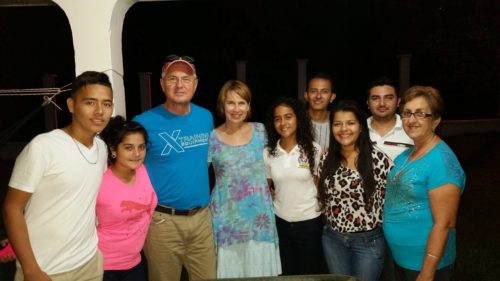
Mr. Wyatt with his family and sponsored children’s family
DW: They live with their mother. She is the primary caregiver, and she has worked several odd jobs in El Progreso. Employment is hard to come by, so she has worked as a clerk in a grocery store, and a custodian at a hospital. But recently, the mother has had health problems. I don’t know how she helped the children when they were not old enough to take care of themselves.
They live in a very rough part of town, and it is amazing that they have somewhere to live at all. They rent the home. For a while they were squatting in a home, and they got into the program because they found an empty home right next to the coordinator’s home. She enrolled the children in Children Incorporated’s program, and then they eventually moved into a home that they could legally pay for.
CI: What do you know about El Refugio?
DW: I met an assistant coordinator, Trenie, who always arranged for a translator and a driver, and has always met me, and spends the whole time with me and my wife, and going about visiting the children’s homes. I have visited all of their schools, and I have taken them out to restaurants and water parks for a day of relaxation. The children are being provided for at the center after school with supplies, clothes and large bags of groceries on a monthly basis.
CI: What can you tell us about the children you sponsor?
The book says to give back to others, and I was impressed with what the author said about Children Incorporated. I have contributed to other charities, and one of the things that I liked the most was that the money goes straight to the children.
DW: Bernardo* was my first sponsored child, but he ended up dropping out of the program. I was asked if I was willing to sponsor a child in the same program in Honduras, which is when I learned about Samuel*. Over the course of a few months, I was told about some special needs of this family, and found out that he had three sisters as well. For about six months, I was only sponsoring Samuel, and then started sponsoring all the children — and that was in 2005.
Cándida* is the eldest of the four children. She was about eleven back then, and now she is 21. She is in her second year of the higher education program in university classes in El Progreso, where she studies information technology. When she’s not studying, she spends her time listening to music and watching movies with her friends.
Right behind her is Mariluz*, who just graduated last December. She’s also a movie buff. We got her a computer to help her with her studies.
Samuel is seventeen. He took an auto mechanics course in junior high school and is continuing his studies at a technical trade school, along with some regular classes.
Natalia* is the youngest. She’s in high school. Like any other teenager, she likes movies and listening to music — but mostly, she looks for simple things to do that don’t cost that much.
CI: Do you communicate with the children directly?
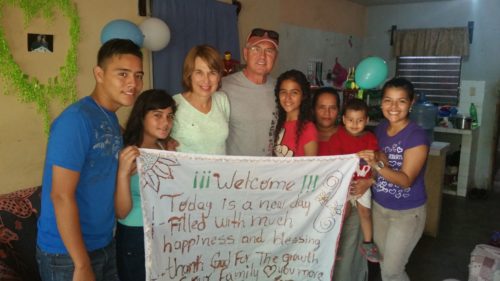 DW: Yes, I try to write them at least as often as they do, if not more — six to eight times a year, and then on birthdays and holidays as well. I tell them a little bit about my life and what I do, and I take pictures of the cockpit of the airplane and send those, and ask them about their health and happiness, and try to encourage them in school. I am hopeful that it will provide some additional opportunities for them.
DW: Yes, I try to write them at least as often as they do, if not more — six to eight times a year, and then on birthdays and holidays as well. I tell them a little bit about my life and what I do, and I take pictures of the cockpit of the airplane and send those, and ask them about their health and happiness, and try to encourage them in school. I am hopeful that it will provide some additional opportunities for them.
CI: Do they write back? What do they say to you?
DW: The letters are normally eight to ten lines long, and they give a brief sentence of how they are doing. And then say they hope my family is happy and healthy.
CI: What advice would you have for someone reading about you and your sponsored children, and considering sponsorship?
DW: Children Incorporated is extremely responsive. They welcome inquiries, pass along concerns and are willing for me to get more personally involved with the needs of the children. I am very happy being associated with Children Incorporated, and I feel that the organization has a great history, and every dollar goes to the direct needs of the child.
People contribute to charities for a lot of different reasons. If you are the type of person that wants to become more involved on a personal level, Children Incorporated lets you do that. Often with other charities, you don’t feel like you have a personal impact. With Children Incorporated, you can be more than just a contributor of money.
* Names changed for children’s protection.
***
HOW DO I SPONSOR A CHILD IN HONDURAS?
You can sponsor a child in Honduras in one of three ways – call our office and speak with one of our sponsorship specialists at 1-800-538-5381, email us at sponsorship@childrenincorporated.org, or go online to our donation portal, create an account, and search for a child in Honduras that is available for sponsorship.

